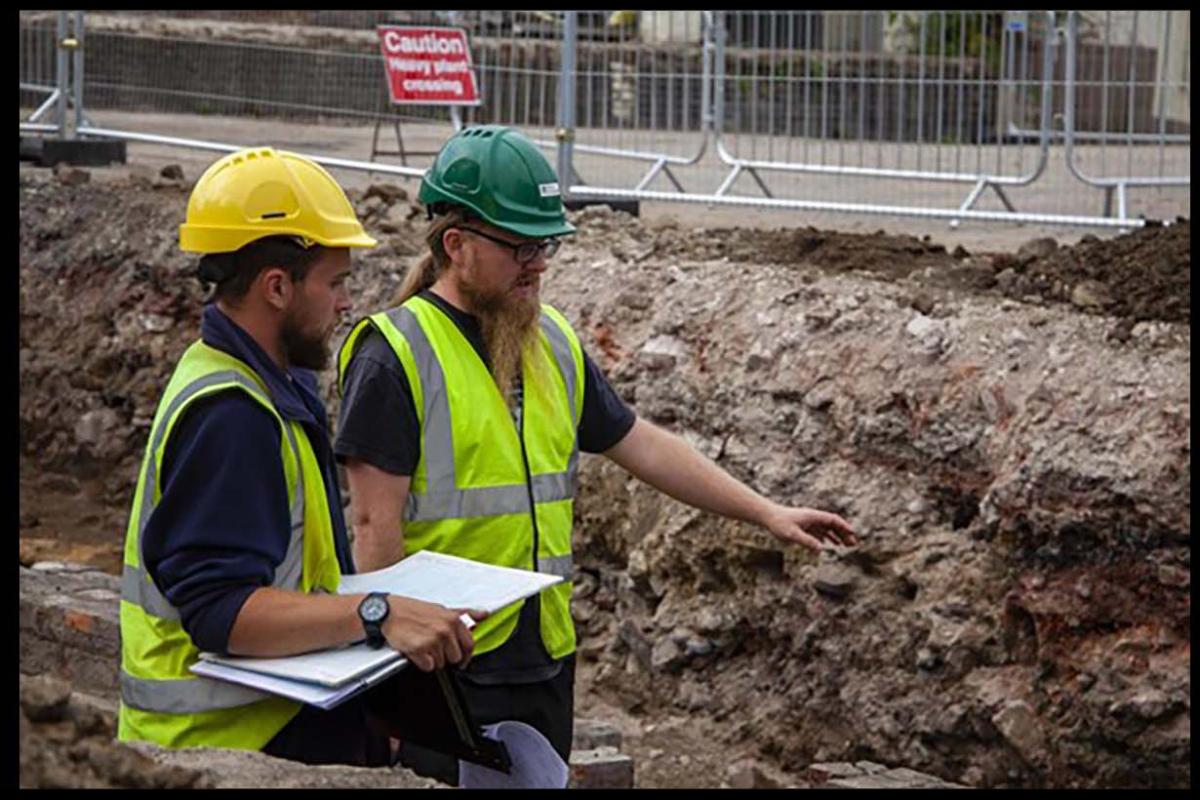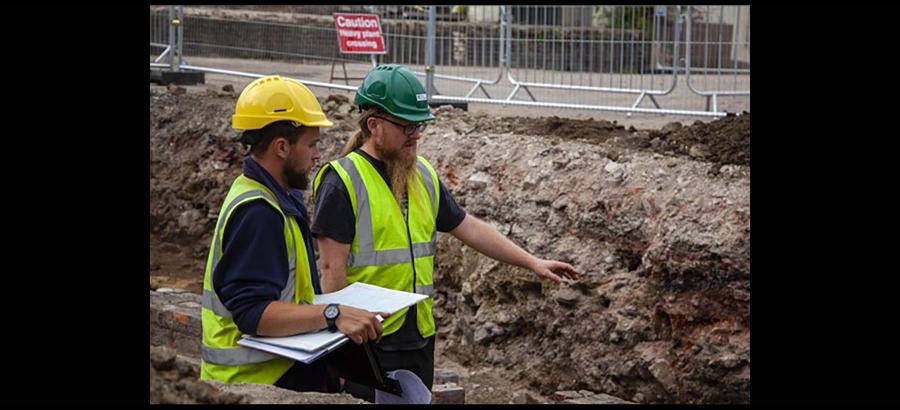We archaeologists tend to be a cynical bunch, sceptical of corporate quack cures, rolling our eyes at hype and marketing-speak. Whilst this is healthy, there’s a point at which it solidifies into conservativism, and opportunities for innovation are lost due to a resistance to, or perhaps even a fear of, change. Nothing unusual here: few people like to leave their comfort zones. Like many people, upon hearing of a new process or technique, I automatically assemble a mental list of drawbacks and disadvantages, rather than get excited about the potential benefits.

Generated using Imgflip Meme Generator
I was left reflecting on this after attending (on Zoom) the CIfA Innovation Festival recently. ‘Innovative Thinking’ is after all one of Wessex Archeology’s core values, something all employees of the company are supposed to do or be receptive to – but how well is this reflected in our actions and across the profession as a whole?
Lately, the use of paperwork for recording our discoveries in the field has been replaced by digital tablets. In fact, there are now staff at Wessex Archaeology who have never filled out a traditional paper ‘context sheet’. Wessex Archaeology was one of the four organisations that showcased their digital recording platforms at the Innovation Festival. A difficult question was asked: would it not have been more ‘innovative’ if those different companies had co-operated to produce a single industry-wide system, instead of developing essentially the same thing independently? The challenges faced by the early adopters of such technology were highlighted: some systems pre-date the mass availability of the sort of tablets capable of surviving life on site, and so data is entered into a central laptop away from the trench, and databases cannot be updated in real time using the mobile phone network. Perhaps one of the perils of being too innovative is that you are always in the beta-testing phase...

At a subsequent discussion titled ‘Innovation in Developer-led Archaeology’ such issues were explored further by a panel of archaeological curators and consultants. The lack of a panellist directly employed in site work seemed a missed opportunity, as fieldworkers have an intimate appreciation of the realities of the job and could have provided useful perspective on the matters under consideration, such as: ‘Who are we innovating for?’, ‘What barriers are there to innovation?’ and ‘What actions do we need to take to boost innovation in commercial archaeology?’.
It was pointed out that one important boost to innovation is changing circumstances – this has been very true during the Covid pandemic. Social distancing has led to outreach moving online, and one result has been a dramatic leap in audience numbers. Our Community & Engagement team has found that the sort of village hall talks that would attract a handful of local residents on a wet weeknight now get hundreds if not thousands of views from a global audience.
At heart, archaeology is magpie profession and the majority of the technologies, practices and interpretive approaches that appear innovative have, in fact, been adopted from other fields. Even that most fundamental of archaeological tools, the trowel, was designed for something else. Happily, with archaeology encompassing many and ever more different specialisms, opportunities for cross-pollination of ideas are only increasing.
Perhaps one of the biggest obstacles to innovation is the word itself – it smacks of radical transformation and perfect outcomes. But small, everyday changes can lead to marginal gains that stack up to create appreciably better outcomes. This can be as simple as, for instance, using what3words to make it easier to give delivery location instructions for our sites, which are often located in out-of-the-way rural areas.
The CIFA Innovation Festival was very thought-provoking and it is well worth viewing the recordings the session that have been made available online. Overall, I was left reflecting that perhaps the most innovative thing we can all do is be more open-minded and imaginative when it comes to innovation…
By Patrick Daniel, Senior Archaeologist
